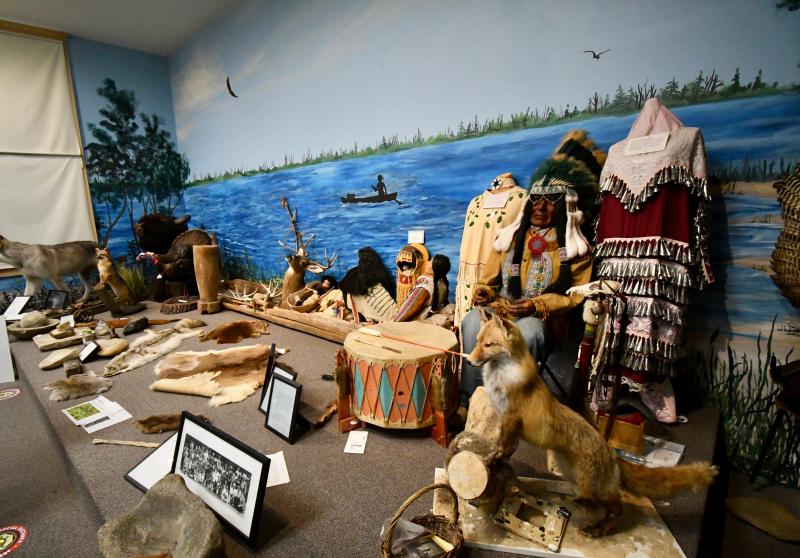Gov. Carney celebrates Delaware Day

To commemorate Delaware Day Dec. 7, Gov. John Carney made trips to historical locations in the state, including a stop at the Nanticoke Indian Museum near Oak Orchard.
He was joined by Sen. Gerald Hocker, R-Ocean View, and newly elected Rep. Jeff Hilovsky, R-Millsboro, who were treated to a tour of the museum by Nanticoke Sterling Street, museum coordinator.
Nanticoke Chief Natosha Carmine talked with the legislators and the governor about plans to expand the museum to include a theater and lecture room, new restrooms, office space, a new lobby, gift shop and outdoor demonstration area. She said preliminary work has been done to design the expansion, but more money and land are needed to complete the project.
Also, the tribe is in the process of improving and expanding its Nanticoke Indian Center not far from the museum along Route 24. A 30-acre land donation and $1.5 million from the Delaware Bond Bill have kickstarted that project.
The museum displays many artifacts that have been passed down down through the years. Among the numerous displays are thousands of arrowheads, pottery, axe hammers, dolls, jewelry, baskets, artwork, headdresses and other objects, all of which are homemade. It also has a research center and an archive dating back to the 1920s.
The museum, the only Native American museum in Delaware, is a National Historic Landmark. The museum is open from 10 a.m. to 4 p.m., Tuesday through Saturday. Special tours for groups are also available. For more information, go to nanticokeindians.org.
Nanticoke timeline
1608 – Capt. John Smith is the first European to make contact with the Kuskarawaoks, later the Nanticokes, along the shores of the Nanticoke River near present-day Phillips Landing outside Laurel and Bethel. Smith records 200 warriors and their families. Nanticokes and Nanticoke Lenni-Lenapes can trace their ancestry back nearly 10,000 years
1668 – Peace treaty signed between tribe and State of Maryland after two attacks on Nanticokes
Early 1700s – Nanticokes are granted a 300-acre reservation on Broad Creek with the condition not to leave the reservation. Tribe members spend summer months along the shore to hunt and fish, and ended up losing their land
1742 – After years of conflict, several tribes meet to plan a war against Maryland. Plans are revealed and thwarted
1744 – Nanticokes receive land and come under the protection of the Iroquois. Many move to Oklahoma and many also move south to the Indian River area
1881 – Nanticokes become a legal entity in Delaware
1922 – Nanticoke Indian Association nonprofit agency is formed
1920s – First powwows take place but are halted in the 1930s
1940s – Tribe builds its own school – now the Nanticoke Indian Center on Route 24 – for first-through eighth-graders. School is open until 1962. Further education takes place at an Indian School in Lawrence, Kan.
1977 – Nanticoke Powwow continues; 44th annual takes place in 2022 at Hudson Fields
1984 – Museum opens
2015 – Nanticokes elect Natosha Carmine as chief, the first female to have the honor
2022 – Nanticoke Indian Association celebrates 100th anniversary with more than 600 members
























































